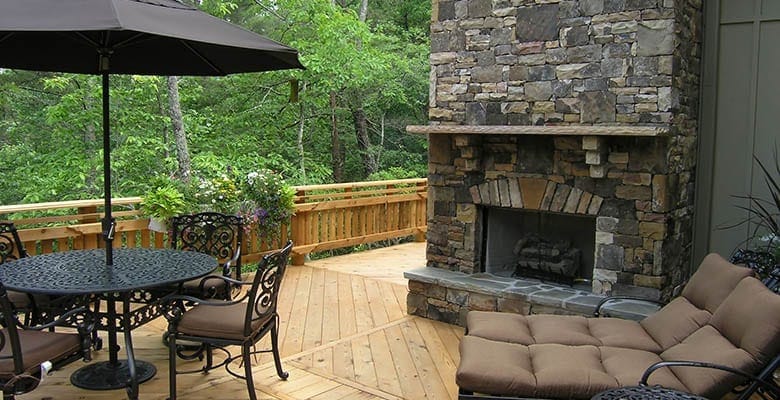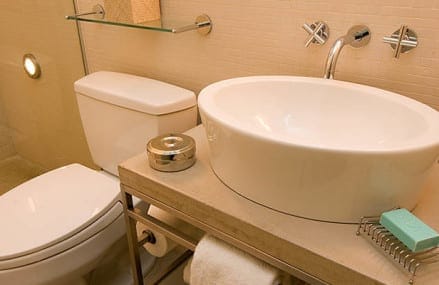
When it comes to enhancing the aesthetics and functionality of your garden, both gazebos and pergolas emerge as two prominent structures homeowners often consider. These structures, while sometimes used interchangeably in conversations, serve distinct purposes and offer unique styles. The choice between a gazebo and a pergola depends largely on the intended function, design preference, and the available space in your garden. Pergola builders with the right expertise can help you in this regard.
In this article, we delve into the differences between the two and offer guidance on making the right choice for your outdoor space.
Defining Gazebos and Pergolas
A gazebo is a freestanding, often octagonal or round structure, which typically has a solid roof and open sides. It offers shade and shelter, while allowing users to enjoy a panoramic view of the surrounding garden or landscape. Classic gazebos often come with raised floors, railings, and sometimes even built-in seating.
On the other hand, a pergola is a more open structure, often rectangular, composed of vertical posts supporting an open lattice or framework on top. The main function of a pergola is to support climbing plants, thereby creating a natural, shaded walkway or sitting area. Unlike gazebos, pergolas don’t usually have a solid roof, which means they provide less protection from the elements but more opportunities for natural sunlight.
Key Considerations for Choice
1. Purpose and Functionality
The primary purpose you wish your structure to serve can heavily influence your choice. If you’re seeking a space where you can sit, perhaps read a book or enjoy a cup of coffee regardless of weather conditions, a gazebo might be the better fit. Its solid roof ensures you’re protected from sudden rain showers or strong sunlight. Conversely, if you’re looking to cultivate climbing plants, or want an architectural structure that lets in sunlight while defining an outdoor patio space, a pergola would be more apt.
2. Aesthetic Preferences
From a design perspective, gazebos often lend a more classic, sometimes even romantic appeal to gardens. They can be adorned with decorative elements, such as cupolas or ornate railings. Pergolas, with their linear design and open framework, offer a more modern and minimalistic look. Their beauty amplifies when they’re intertwined with plants, turning them into living structures.
3. Space Availability
Consider the space you have. Gazebos, given their typical round or octagonal shape, might require more ground area and can become the focal point of a garden. Pergolas, being more flexible in their design, can be fitted into narrower spaces or even be attached directly to the home, serving as a transitional structure from indoors to out. Custom pergola builders Long Island can help you make the best use of your available space.
4. Maintenance and Durability
Both structures require maintenance, but the specifics vary. Gazebos, with their solid roofs, might need regular checks for leaks or damage. Wooden gazebos would also require treatments to protect against rot and pests. Pergolas, being more open, are less susceptible to weather-related damages but can become hosts to climbing plants, necessitating regular checks to ensure the plants don’t damage the structure or cause wood decay.
5. Budget Constraints
While both structures can range in price based on size, material, and design intricacies, pergolas are generally considered less expensive, mainly because they require fewer materials. Gazebos, with their intricate designs and additional features like built-in seating or flooring, tend to be pricier.
How to Choose a Pergola or Gazebo Contractor
The allure of a well-crafted pergola or gazebo in one’s garden is undeniable. These architectural elements can transform an ordinary outdoor space into a serene retreat or a vibrant entertainment spot. However, the final outcome largely depends on the skill and expertise of the contractor you hire. With myriad contractors available, making the right choice can be daunting. Here’s a comprehensive guide on how to sift through the options and choose the ideal pergola or gazebo contractor for your project.
Understanding Your Requirements
Before embarking on the journey of selecting a contractor, it’s crucial to have a clear vision of what you want. Define the purpose of the structure, whether it’s for aesthetic appeal, shade, or entertainment. Factor in the size, design intricacies, materials, and your budget. Having a firm grasp of your requirements will not only streamline discussions with potential contractors but also help in assessing their suitability for your project.
Experience Matters
In the world of construction, experience is a significant indicator of a contractor’s expertise. A contractor who has been in the business for several years is more likely to have encountered and resolved a myriad of challenges related to gazebo and pergola construction. Their accumulated experience ensures they can handle complexities and deliver a durable and aesthetically pleasing structure.
Check Past Projects and Reviews
A reputable contractor will readily provide a portfolio of their past projects. Scrutinizing these projects gives you a firsthand view of the quality of their work and their design versatility. Alongside the portfolio, dive into reviews and testimonials from previous clients. The feedback, whether positive or negative, provides insights into the contractor’s professionalism, work ethic, and customer satisfaction levels.
Licensing and Insurance
Construction projects, even seemingly straightforward ones like pergolas or gazebos, come with their fair share of risks. It’s essential to ensure that the contractor you choose is licensed, which signifies they adhere to the local construction standards and regulations. Furthermore, insurance protects you from potential liabilities in case of accidents or damages during the construction process.
Communication is Key
Effective communication underpins the success of any construction project. The ideal contractor should not only be receptive to your ideas but also offer their expert suggestions. Gauge their communication skills right from the initial interactions. Are they patient in listening to your requirements? Do they provide clear explanations? A contractor who values communication will ensure that the project progresses smoothly, with minimal misunderstandings or disputes.
Budget Transparency
The cost of constructing a pergola or gazebo can vary widely based on design, materials, and labor charges. An honest contractor will provide a detailed quotation, breaking down all the costs. Such transparency enables you to understand where every penny goes and ensures there are no surprise charges later. It’s also wise to get quotations from multiple contractors. While it’s tempting to go for the lowest bid, weigh the cost against the quality of work and materials proposed.
Contract Clarity
Once you zero in on a contractor, the next step is to have a clear and comprehensive contract. The contract should detail the scope of work, materials to be used, project timeline, payment schedule, and any warranties or guarantees. A well-drafted contract protects both parties and serves as a reference point in case of disagreements.
Conclusion
The decision between a gazebo and a pergola boils down to individual preferences, garden size, and budget constraints. Both structures have the potential to elevate the aesthetics of your outdoor space, but each offers its unique charm and functionality. Reflect on what you envision for your garden and weigh the pros and cons of each structure to make an informed choice that you’ll cherish for years to come. So, what are you waiting for? Talk to pergola contractors Port Jefferson today!



